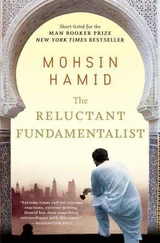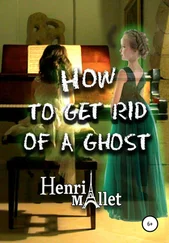Penetration and education, the two are intertwined in the lives of many around you. In the life of your sister, for example. She is sobbing when you return home. Lately she alternates with alarming frequency between suppressed but globular tears and calm airs of smug superiority. At the moment it is the former.
You say, “Again?”
“Sit on my dick, you little pussy.”
You shake your head. You are too weak to retort appropriately, and what’s more too drained to be confident of dodging one of her quick-fire slaps.
She notices something is wrong with you. She says, “What happened to your ear?”
“Teacher.”
“That sisterfucker. Come here.”
You sit beside her and she puts her arm around you, stroking your hair. You shut your eyes. She sniffles once or twice, but she is done crying for now.
You say, “Are you frightened?”
“Frightened?” She forces a laugh. “He should be frightened of me.”
The he she refers to is your father’s second cousin, a decade her senior, to whom she is now betrothed. His first wife recently died in childbirth after two earlier miscarriages, and no time has been wasted in arranging him another.
“Does he still have that mustache?” you ask.
“How should I know? I haven’t seen him in years.”
“It’s enormous. That mustache.”
“You know what they say about the size of a man’s mustache.”
“What?”
“Never mind.”
“So are you frightened?”
“Of what?”
“I don’t know. Of leaving. I’d be scared to move back to the village all by myself.”
“That’s why you’re still a boy and I’m a woman.”
“You’re a girl.”
“No, I’m a woman.”
“A girl.”
“I bleed every month. I’m a woman.”
“You’re disgusting.”
“Maybe.” She smiles. “But a woman.”
Then she surprises you. She does something you associate with women of girth and substance, not with slender slips of girls like your sister. She sings. She sings in a quiet and powerful voice. She sings a song that mothers in your village sing to their newborns, a song that your mother in fact sang to each of you. It is like a lullaby but more upbeat, meant not to put an infant to sleep but rather to communicate a mother’s presence when a task takes her beyond touch or out of sight. You have not heard it in years. It feels strange to hear your sister sing it, oddly relaxing and unsettling at the same time. You lean against her as she sings, and you feel her body swell and diminish like a harmonium.
When she stops, you say, “Let’s play river.”
“All right.”
The two of you leave the room shared by your family, similar in size to the room you shared in your village, but made of brick instead of mud and perched precariously on the third and highest floor of a tottering, narrow building. You dash down the stairwell and from there find your way to a small, secluded alley, or inlet, rather, since it branches off the street but leads nowhere, and is circumscribed by dwellings on three sides. It contains a hillock of trash, behind which is an uncovered sewer.
Viewing the scene from the lenses of an orbiting reconnaissance satellite, an observer would see two children behaving peculiarly. He or she would note that they display undue caution in approaching the sewer, as if it were not a trickle of excrement of varying viscosities but rather a gushing torrent. Moreover, although the sewer is shallow and could be crossed with a modest hop, the children stand warily on either side of it, cupping their hands to their mouths as though shouting to each other from a great distance. Agreement reached, one picks up a piece of metal, the discarded spoke of a bicycle wheel, perhaps, and seems to use it to fish, albeit with no string or bait, and no prospect of catching anything. The other takes a torn strip of brown cardboard packaging, long and jagged, and jabs it repeatedly in the direction of the sewer. Spearing transparent turtles? Fending off invisible crocodiles? It is difficult to gauge the purpose of her frenetic movements. Suddenly the girl squats, pantomiming the gestures of lighting a fire. The boy calls out to her, and she tosses him one end of her shawl.
You grip the shawl firmly. In your hands it becomes the rope you will use to ford the river. But before you can do so, and without warning, the spell breaks. You follow your sister’s altered gaze and see that a formerly shuttered window is now open. A tall, bald man stands inside, staring at your sister intently. She takes her shawl from you and throws one end over her head, the other across her still-small-breasted chest.
She says, “Let’s go home.”
Your sister has worked as a cleaning girl since shortly after your family moved to the city, your father’s income unable to keep up with the rampant inflation of recent years. She was told she could go back to school once your brother, the middle of you three surviving siblings, was old enough to work. She demonstrated more enthusiasm for education in her few months in a classroom than your brother did in his several years. He has just been found employment as a painter’s assistant, and has been taken out of school as a result, but your sister will not be sent there in his stead. Her time for that has passed. Marriage is her future. She has been marked for entry.
Your brother is sitting in the room when the two of you return. He is exhausted, a fine white dusting of paint on the exposed skin of his hands and face. It is also on his hair, like a play actor’s makeup, and he resembles a boy about to go onstage as a middle-aged man in a school drama. He looks at you wearily and coughs.
Your sister says, “I told you, you shouldn’t smoke.”
He says, “I don’t smoke.”
She sniffs him. “Yes, you do.”
“The master does. I’m just around him all day.”
The truth is that your brother has smoked on several occasions. But he does not particularly like to smoke, and he has not smoked this week. Besides, smoking is not the reason for his cough. The reason for his cough is paint inhalation.
Each morning your brother walks over the train tracks, using the crossing if it is open, or if it is not and the train is moving slowly, making a dash for it with the urchins for whom this activity is a game. He catches a bus to the century-old, and hence in city historical terms neither recent nor ancient, European-designed commercial district. There he enters, through a tea stall, an open space that was formerly a public square, or public trapezoid rather, but is now, because of illegally built encroachments that have filled in its entryways, an entirely enclosed courtyard.
The courtyard is a marvel of mixed-use planning, or non-planning to be more precise. The upper floors of its constituent buildings contain family and labor residences, guest rooms of a run-down hotel, workshops occupied by tailors, embroiderers, and other craftsmen, and also offices, including two belonging to a pair of aging private investigators who harbor an abiding hatred and can be seen watching each other through their windows from either side of the divide. At ground level, the fronts of the buildings, which is to say their non-courtyard-facing sides, are given over to shops and unprepossessing restaurants. Their courtyard-facing backsides, on the other hand, are devoted to small-scale manufacturing, to operations that because of their sonic, aromatic, visual, or chemical noxiousness are unpopular in a high-density neighborhood such as this one, and therefore utilize the enclosed courtyard as a partial veil.
The painter your brother assists is an air-gun spray painter, and their work today was an assignment for an interior designer of remarkable valor and renown. Your brother began by unloading a set of custom-made, built-in bookshelves, still unpainted and yet to be built in, from a tiny flatbed truck. He carried them with great care, in small hop-like increments because of their weight, through the tea stall, out into the courtyard, and back into the entrance of the painter’s shed. He taped plastic sheets to the corrugated ceiling, forming curtains to prevent paint particles from drifting onto the surfaces of other objects already painted and awaiting collection. He taped newspaper around the halogen lighting fixtures and the brushed-metal electricity switches that were built into the built-in bookshelves. He lifted cans to the painter’s instructions, mixing paint and primer. He located extension cords to power up the compressor for the air gun. He then stood behind the painter, sweating in unventilated, infernally hot conditions, as the painter held the gun and proceeded to make hundreds of straight-line passes across the wood of the bookshelves, like a robot in an automotive assembly plant, but with slightly less precision and considerably more swearing, your brother dashing off every few minutes in response to grunted commands to clean a spill, move the ladder, get some water, get some bread, or reconnect exposed wires with electrical tape.
Читать дальше












